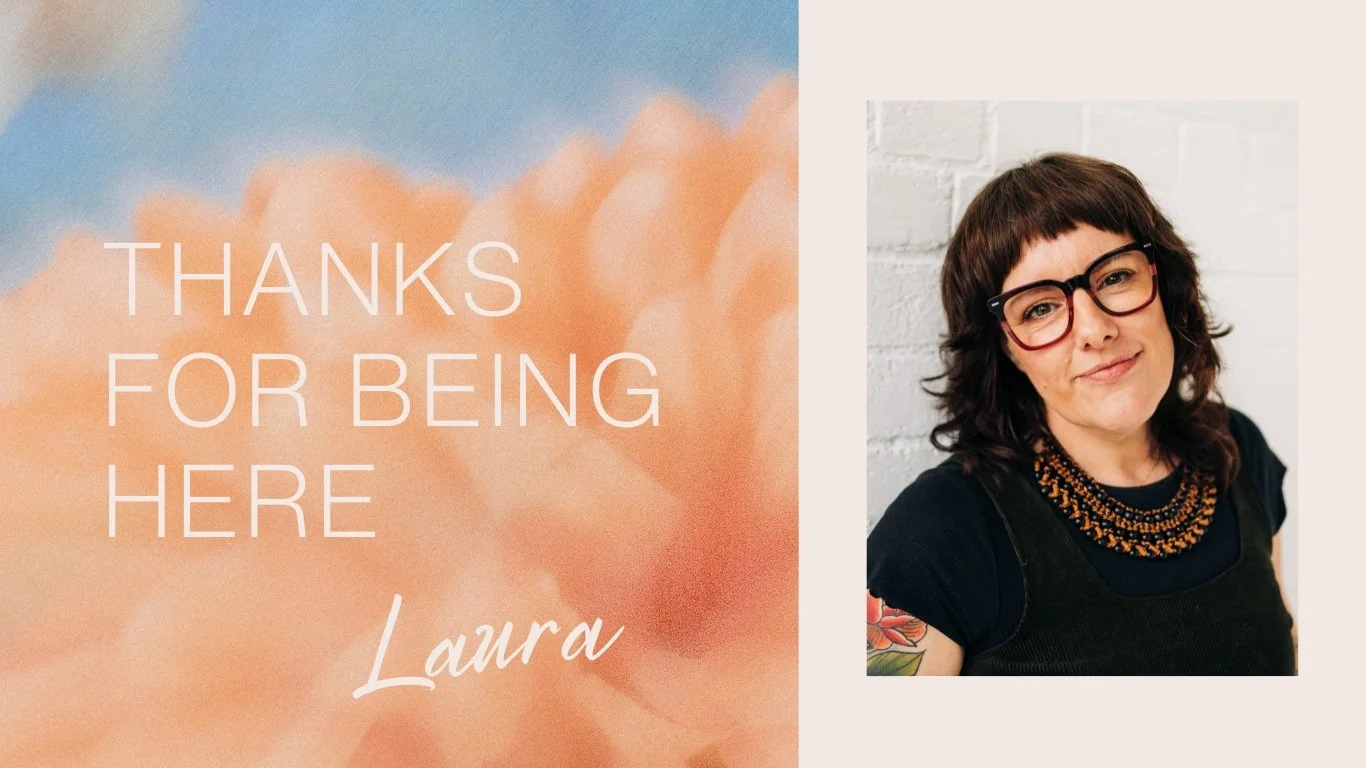Connecting with self-compassion in times of struggle
How to practice self compassion in your daily life
The idea of being more compassionate towards ourselves can feel challenging at best and impossible at worse. We all know that we should probably be kinder to ourselves but it can be a struggle to actually put this into practice and embrace self compassion in our daily lives. This is especially true when we are in the middle of struggle or when the world feels heavy.
I’m Laura, a counsellor and a somatic trauma therapist. Compassion work is something I explore with almost all of my clients. Before I explore this more, it feels important to say that having the space and time to invest in wellbeing practices is a privilege.
For many people, structural inequalities and not having basic needs met, like the need for safety, food, adequate housing etc mean that all of the compassion in the world won’t change much. That’s not to say changing the way you respond can’t change the way you experience life, even in times of struggle. There is a famous quote by Viktor Frankl, a psychologist and holocaust survivor that says “Between the stimulus and response, there is a space. And in that space lies our freedom and power to choose our responses. In our response lies our growth and our freedom”. Even when accessing that “space” feels impossible, the intention to soften toward ourselves can be an act of gentle push back against the harshness of the world.
I wanted this to be part of the context of this post, because I want you to know if that self-compassion feels far away and out of reach, because you’re in survival mode or because meeting your basic needs is a battle, I see you. I’d love for you to explore the reflections and practices I share below but I’d hate for you to turn this post into something that becomes another thing to be hard on yourself about. If self-compassion feels hard right now, that’s okay. Simply noticing that it feels out of reach is already an act of awareness and care. You can come back to these ideas whenever you’re ready, or even just take one small thread from them and hold it lightly.
How to be compassionate to yourself: why practice matters
What is self compassion? I think framing it as self kindness can be helpful. This isn’t something most of us just “have” naturally. It’s a skill, a practice and a path. I like to say practice makes progress, not perfection. Our brains are really adaptable (thanks to neuroplasticity) and, with practice, we can rewire the way we respond to ourselves.
So, how is self-compassion defined? Researcher Dr. Kristin Neff describes three essential components:
Self-kindness vs. self-judgment: meeting yourself with gentleness rather than harsh criticism.
Common humanity vs. isolation: remembering that suffering is part of being human, not a personal failure.
Mindfulness vs. over-identification: noticing your feelings without getting completely swept away by them.
How to be kinder to yourself
The first step is noticing:
How do you talk to yourself?
Is your inner dialogue filled with harsh criticism?
Do you call yourself names you would never say to someone you love?
Or perhaps you carry quiet, subtle self-doubt that hums in the background?
Not everyone experiences an inner “voice” as words. However your self-talk shows up, becoming aware of it is the first step towards more self empathy.
Try this:
Keep a self-kindness journal (or use your phone notes). Each time you catch yourself being self-critical, write it down.
Then ask: would I speak this way to someone I love? If not, try being compassionate and rephrasing what you’re telling yourself, with a little more warmth and care.
For example:
Instead of: “I’m so clumsy.”
Try: “Accidents happen. I didn’t do this on purpose.”Instead of: “I talk too much.”
Try reframing as:I'm a great conversationalist: Conversation is a valuable skill and you're good at keeping discussions engaging.
I share my enthusiasm: I’m someone who passionately shares ideas, experiences, and interests.
I express my thoughts effectively: I’m someone who can express their thoughts and feelings, making it easier for others to understand me.
Practicing compassion: connecting with with others vs. isolating yourself
It’s important to remember that offering yourself more kindness and care doesn’t need to be a solo thing. In times of struggle, being around other people can help you to feel more grounded. Our brains and nervous systems respond to the brains and nervous systems of the people around us, so even just spending time with someone else who’s feeling calm can help us to feel calmer. It can also really help to talk to someone who can empathetically listen and validate your experience. If you don’t have access to this kind of support, there are some suggested resources for health and wellbeing support here.
If you are planning to talk to a friend, it can to be clear about what you need. For example you might explain that you’re just looking for someone to listen rather than offer advice. Sometimes we just need a space to be heard and to have our feelings acknowledged.
Mindfulness instead of over-identification
Mindfulness in self-compassion doesn’t mean detaching from feelings or pushing them away. It means being present with your experience without drowning in it.
Dr. Neff’s Self-Compassion Break is a beautiful practice:
Recognise suffering: Acknowledge your experience.
“This is really hard right now.”
Remember common humanity: You’re not alone.
“Struggle is part of being human. Others feel this too.”
Offer kindness: Gently speak to yourself with care.
“May I be kind to myself in this moment.”
You might place a hand over your heart, take a slow breath, or whisper some affirming words. These small gestures help anchor compassion into the body, not just the mind. If you’re looking for other ways to be more connected to your bodily experience, as a way of cultivating compassion and presence, check out this post about somatics.
Some final thoughts
Self-compassion isn’t a destination, it’s an ongoing practice. It’s not about erasing struggle, but about learning to meet yourself in struggle with softness rather than sharpness. If you take away one thing, let it be this: you don’t need to master every practice at once. Choose one small step, try it and notice what shifts.
The body remembers: exploring somatic therapy approaches
Embrace simple rituals for daily grounding
Finding healing by embracing self-acceptance



